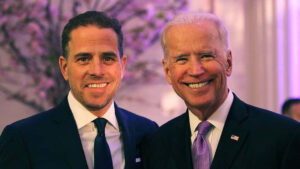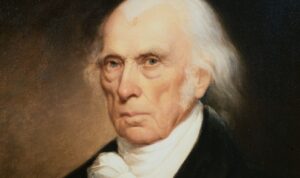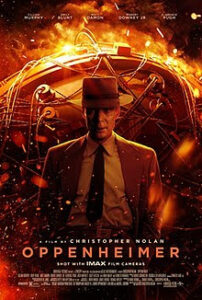How Much Longer Will Joe Be Protected?

President Biden’s story about having nothing whatsoever to do with Hunter’s overseas consulting business keeps getting thinner. Even the corporate media is catching on.
On July 28, I talked about some of the evidence (including bank statements) of Chinese, Russian, and Ukrainian money moving from overseas accounts into not only Hunter’s shell companies but into the private bank accounts of more than a half-dozen Biden family members.
The same day that article was published, Devon Archer, Hunter’s former business associate, testified before the House Oversight Committee about “at least 20” private phone conversations or personal meetings with Hunter and foreign executives where Joe Biden was present.
On July 31, in an interview conducted by Tucker Carlson, Archer admitted that Biden understood what those conversations were about. “Yeah,” he said, “I think I can definitively say at dinners and meetings, he knew there were business associates.” He even called Joe Biden’s presence during the meetings an “abuse of soft power.”
Archer also noted that Hunter was hired to be on the board of Burisma, a Ukrainian energy firm, because that “offered the company the advantages associated with the Biden brand.”
At this point, and given the fact that Hunter was not able to get the first-in-US-history lifetime immunity for past and future felonies (agreed to by the Justice Department), I can’t see how his business of creating a personal net worth of more than $100 million by consulting with Russia, China, and Ukraine during the Obama years is going to be contained.
And as the details start to come out from whistleblowers and subpoenas, I can’t see how everyone that has been helping him won’t abandon him. And when that happens, the next to go will be “the big guy.”
Of course, I could be wrong. Let’s see what happens.
What to Do with the Student Debt Problem
As I said on July 21, President Biden’s efforts to “forgive” student debt is not only a terrible idea from an economic and financial incentive perspective, it’s complexly immoral.
Here’s a much better idea – one that you won’t like if you like Biden, because it comes from Ron DeSantis: Make student loan debt dischargeable during bankruptcy. Like any other loan. That’s not possible now, but the prohibition against it doesn’t make sense.
DeSantis’s idea is to allow students buried in debt to declare bankruptcy and move on from there. But with a twist. “I think the universities should be responsible for the student debt,” he said. “You produce somebody that can be successful, they pay off the loans, great. If you don’t, then you’re gonna be on the hook.”
Nellie Bowles, writing in The Free Press, had this to say about the proposal:
“I like this a lot. Most of the people who want student debt forgiven argue that the government should do it all, that the truck driver’s taxes should cover that MA in Modernist Art. None of these activists would dare touch Harvard’s endowment (currently $53.2 billion as of June 2021) or any other university bank accounts. DeSantis is right. Free the student debtors. Raid the endowments. Make schools make their students employable, or at least, you know, functional. Let’s start there.”





